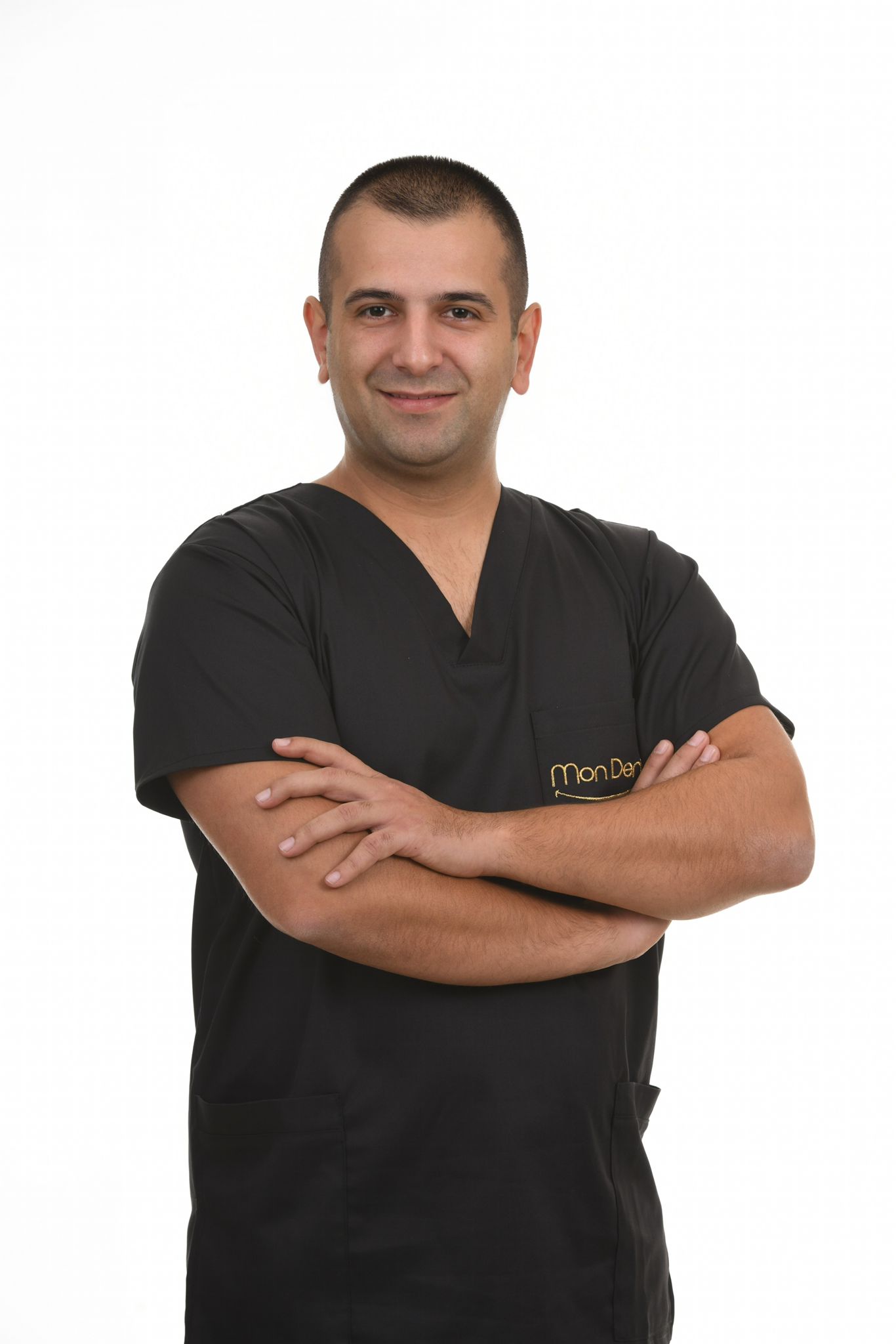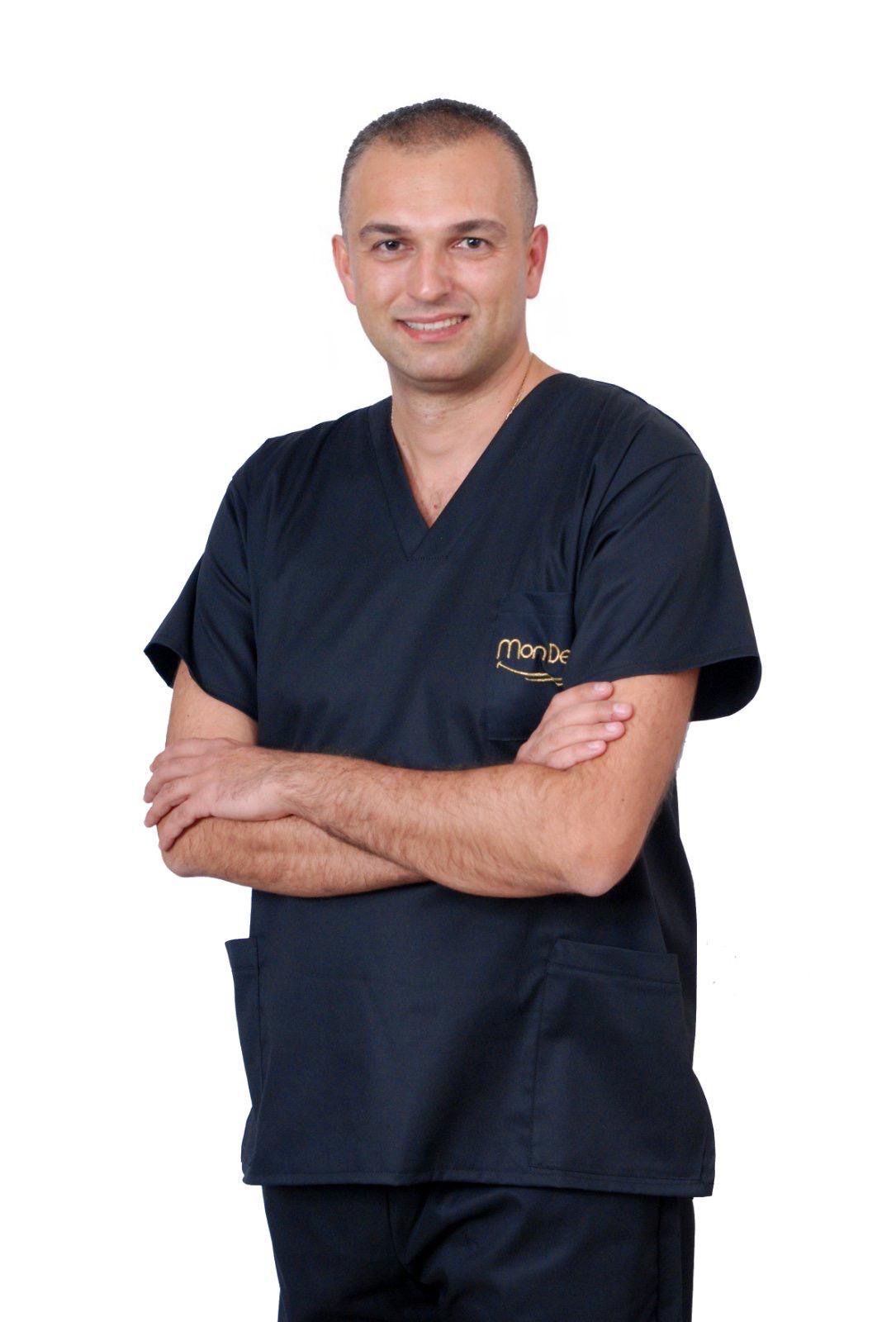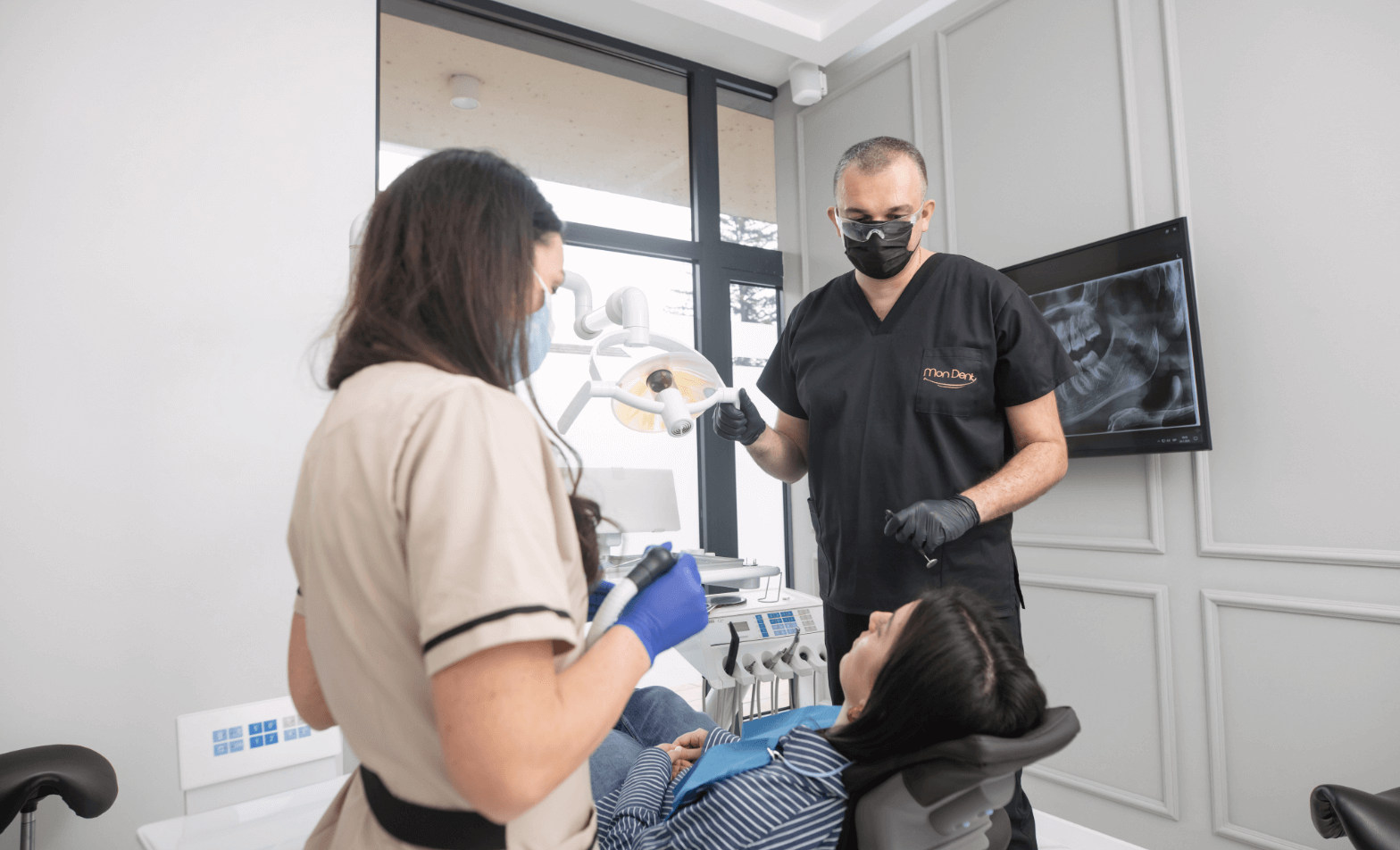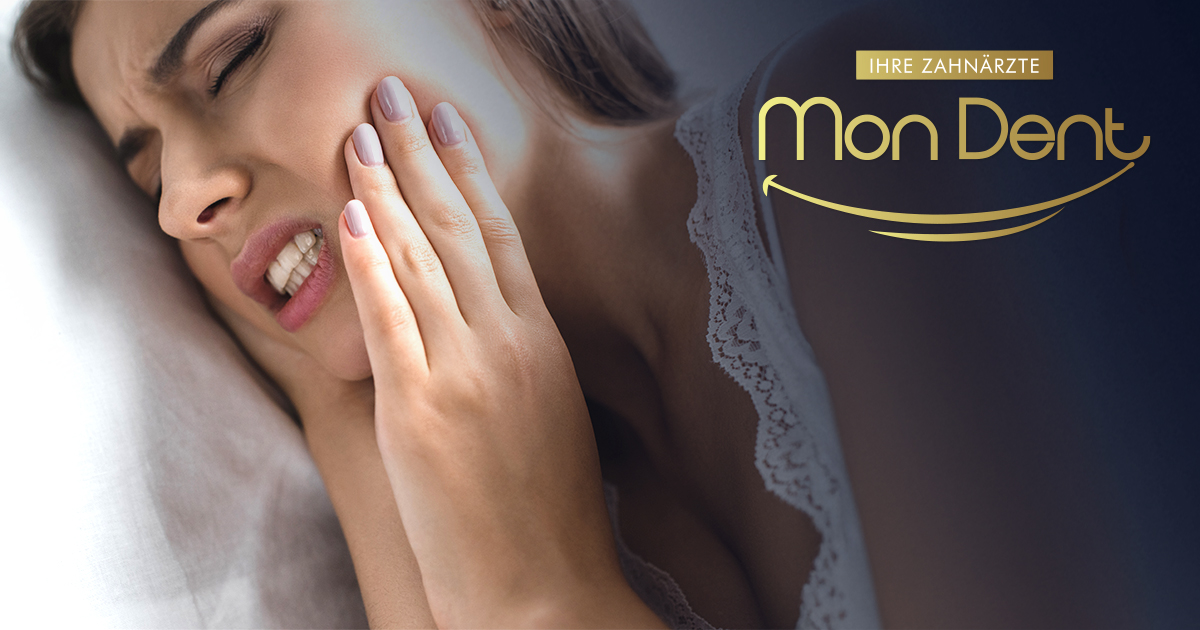Content:
- Toothache – what causes it?
- How to relieve toothache at home?
- When is it necessary to visit a dentist?
- How to prevent toothache?
Toothache is one of the most common dental problems that can seriously affect your daily activities. It often occurs suddenly, when you least expect it, and can be mild, in the form of discomfort, or extremely severe, the so-called unbearable toothacheRegardless of its intensity, a toothache is a sign that something is wrong with your oral health and that it is necessary to react in time.
In this blog, we will present you with possible causes of toothache, methods of pain relief, natural remedies, and find out when it is necessary to visit the dentist. Our most common advice is to visit the dentist as soon as you realize that something is wrong with your teeth, but if you are still unable to do so immediately, the MonDent team will now provide you with useful tips for reducing pain.
MonDent dental office provides services periodontology and oral medicine, where we discover the cause of toothache and immediately solve the problem.
What can cause a toothache?
Toothaches can have many causes, and they can range from mild irritation to serious infections that require immediate intervention. The most common causes of toothache are poor dental health that has not been addressed in a timely manner. Since early childhood, dentists have been telling us that regular visits to the dentist are very important, and this advice is certainly the best prevention of toothaches and other problems related to teeth and gums.
However, it is good to know that any dental problems are solvable and that with experienced dentists you can find the best solution for your current dental condition. Below we bring you some of the most common causes of toothache.
1. Caries – the most common cause of toothache
Cavities are caused by the breakdown of tooth enamel and dentin under the influence of acids produced by bacteria present in the mouth. If not treated in time, they can penetrate deeper into the tooth, affecting the nerve and causing severe pain.
Symptoms of caries:
- Sensitivity to hot, cold and sweet
- Bite pain
- Visible holes in the tooth
- Occasional or constant pain
If you experience these symptoms, schedule an appointment with your dentist so that treatment can begin on time. Treatment involves removing the decay and placing a filling. If the infection has reached the pulp of the tooth, root canal treatment is necessary, or endodontic therapy.
2. Gingivitis and periodontitis
Toothache is not necessarily caused by a problem with the tooth. Toothache can also be caused by problems with the gums, such as: gingivitisa i periodontitisGingivitis can cause pain, swelling and bleeding, and in more severe cases, loss of tooth support.
Symptoms of periodontitis are easily noticeable:
- Bleeding gums
- Redness and swelling
- Loose teeth
- Gum recession
Treatment includes professional removal of tartar and bacterial deposits, with the use of antiseptic solutions and antibiotics if necessary. Not every patient is at the same stage of gingivitis, and each patient needs to be given a certain amount of time during the examination to introduce the best therapy.
3. Tooth abscess – an emergency that requires attention
You may remember that at the beginning of the blog we talked about the importance of regularly visiting your dentist. If we do not practice this important prevention and if we remain silent about the symptoms of tooth decay, an abscess will occur. Abscess is a serious infection that can occur inside the teeth or gums. It usually occurs as a result of untreated tooth decay, trauma, or poorly performed dental procedures.
That's why it's very important to choose a reliable dentist who works in detail and is 100% dedicated to each patient. MonDent Dental Clinic is known for the professionalism of our dentists and staff, and for always keeping up with new technologies in the world of dentistry. With us, you will feel safe and you will always leave with the most beautiful smile!
Symptoms of an abscess should not be ignored:
- Severe, throbbing pain
- Swelling of the gums and face
- Fever
- Bad breath
Unbearable toothache most often occurs with a tooth abscess, so you should not ignore the above symptoms!
Treatment of abscess includes drainage, antibiotic therapy and, in more severe cases, tooth extraction. Every dentist's goal is to completely preserve the teeth of their patients, but when it is necessary, tooth extraction simply has to be done. However, there is a solution for that too, and that is implantology or dental implant which is the best long-term solution in these cases.
4. Crack in the tooth or damaged filling
Sometimes, pain can be the result of a microcrack in the tooth that is not visible to the naked eye. These cracks can cause sensitivity to cold and heat, as well as discomfort when biting. Also, damaged fillings can lead to the penetration of bacteria under the filling, which can irritate the tooth nerve and increase the risk of infection.
Possible causes of cracks in the tooth:
- Nighttime teeth grinding (bruxism)
- Excessive consumption of hard food
- Sudden temperature shocks (e.g., drinking very hot and cold drinks in a short period of time)
- Impacts and trauma in the jaw area
5. Sinus infection
Sinus infections can often be associated with pain in the upper teeth. Sinusitis can put pressure on the roots of the teeth, which can cause pain that feels like a toothache.
Symptoms of sinus infection associated with toothache:
- Stuffy nose
- Pressure in the forehead and cheek area
- Increased pain when bending the head
In such cases, it is necessary to treat the underlying problem – sinusitis.
How to relieve toothache at home?
When you experience the symptoms we have described and explained above, call your dentist immediately. Until you can see a dentist, you can try some of the methods for temporary pain relief.
1. Toothache medications
The most effective way to quickly relieve pain is with analgesics. Toothache is most often relieved with the following medications:
- Ibuprofen
- Paracetamol
- Aspirin (except for children)
If you are unsure about the dosage of the medication, call your dentist or doctor who will recommend the necessary dosage. Also, pay attention to whether you are allergic to any of these medications so as not to create an even bigger health problem.
2. Natural remedies for toothache
If you prefer natural methods, here are a few options:
- Rinse your mouth with salt water. – reduces inflammation and eliminates bacteria.
- Clove oil – has analgesic and antibacterial effects.
- Sage tea – has an anti-inflammatory effect and soothes the gums.
- Aloe vera gel – can help reduce gum inflammation and relieve pain.
Again, we would like to point out that this should be an immediate solution to only relieve pain and symptoms, and a visit to the dentist is necessary.
3. Cold compresses
Holding a cold compress on your cheek can help reduce pain and swelling. The cold constricts blood vessels, reducing blood flow to the affected area and acting as a natural anesthetic.
How to use cold compresses correctly?
- Take a bag of ice or frozen vegetables and wrap it in a towel.
- Keep the compress on the affected area externally, on the cheek, for about 15-20 minutes.
- Take a 10-minute break before putting it back on.
- Do not put ice directly on the skin, as it can cause tissue damage.
Cold compresses are especially useful for swelling caused by infections, abscesses i dental trauma.
4. Avoiding certain foods
During the duration of toothache, it is recommended to avoid:
- Cold and hot drinks
- Sour and sweet foods
- Hard foods that can further irritate teeth
When is it mandatory to visit a dentist?
A toothache is not something to ignore, especially if it is:
- Long-lasting and does not go away even after a few days
- Accompanied by facial swelling
- Associated with high temperature
- Accompanied by bleeding or bad breath
Our office offers comprehensive dental services, including: periodontology and oral medicine, to ensure the health of your teeth and gums.
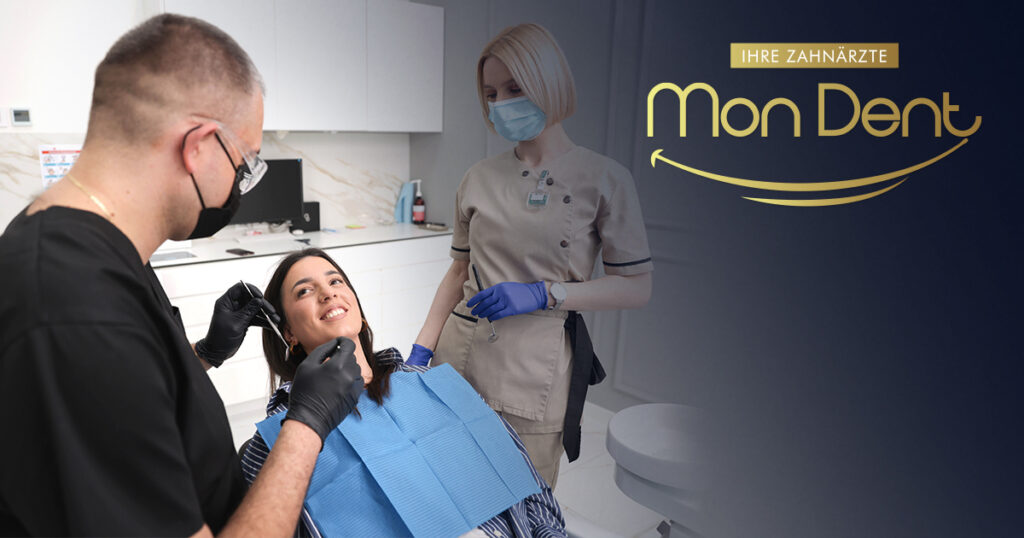
How to prevent toothache?
The best defense against toothache is preventionMaintaining good oral hygiene habits and regular visits to the dentist can significantly reduce the risk of dental problems.
- Brush your teeth at least twice a day. with fluoride toothpaste to prevent plaque buildup and the development of cavities.
- Use floss to clean between teeth. – this helps remove food debris and bacteria that collect between the teeth.
- Visit the dentist regularly. – it is recommended at least twice a year for preventive examinations and professional scaling.
- Avoid excessive sugar consumption. – Sugars feed bacteria in the mouth, which increases the risk of cavities.
- Take care of a healthy diet – consume foods rich in calcium and vitamins that strengthen enamel and gums.
- Avoid excessive consumption of acidic foods and carbonated drinks. – acids can erode tooth enamel and increase tooth sensitivity.
- Stop bad habits. such as nail biting, teeth grinding or opening bottles with your teeth, as they can cause cracks and breakage of teeth.
- Pay attention to the symptoms – if you notice bleeding gums, sensitivity to cold or hot, or any pain in your teeth, do not delay a visit to the dentist.
- Use antibacterial mouthwashes. – they help reduce bacteria and freshen breath.
At our MonDent dental office we provide preventive examinations i professional teeth cleaning to avoid toothache problems. Regular dental care is the key to the long-term health of your teeth and gums.
Conclusion
A toothache can be a sign of a serious dental problem that requires immediate attention. While there are ways to temporarily relieve the pain, only a proper treatment can provide the real solution. dentist visit.
If you are suffering from unbearable toothache, do not delay your examination. Our experienced dentists It will help you find the cause of the pain and solve it permanently.
Make an appointment in our office today and get rid of your toothache!

